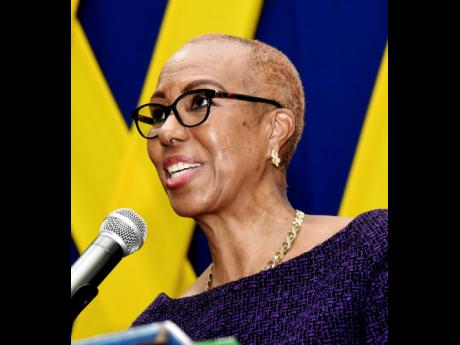Editorial | It’s reading, stupid
To paraphrase James Carvelle’s directive for Bill Clinton’s successful presidential campaign two decades ago: it’s reading, stupid.
If you cannot read in primary school, it is unlikely you are learning much else, including absorbing technical and vocational education and training (TVET). Which someone should explain to Fayval Williams, Jamaica’s education minister. Ms Williams and her technocrats at the education ministry should also pay attention to the reading ‘miracle’ happening in several southern American states, for which Mississippi has become something of a poster child.
In 2013, Mississippi ranked the second-worst state for reading among fourth-grade students in the United States. Last year, it was 21st among the 50 states, an improvement of 25 places in the past decade. A dozen years ago, only 75 per cent of Mississippi’s students graduated from high school, which was four per cent below the national average. By 2020, 87 per cent graduated, a 12 percentage increase over the period and one percentage point above the national average. Reading scores have spiralled, as have performances in maths.
Ms Williams should want to know how this turnaround was achieved in Mississippi, and the gains being made in states like Alabama and Louisiana, and others in the south that are among the poorest in America.
There is relevance between what is increasingly being referred to as the ‘Mississippi Miracle’, the state of literacy among Jamaican primary-school students, and Ms Williams’ recent announcement of a policy to introduce a TVET curriculum to the island’s primary schools.
MULTIPLE PATHS
At first glance, the education minister’s policy of expanding technical and vocational training to this level of the education system seems to make sense. She said: “Increasingly, at various levels of the society, there is a recognition that we need to develop an education system with multiple paths to success, to support and cater to the diverse strengths and talents of our people. It does not have to be a traditional two track.
“The traditional divide between an academic path and vocational path has become artificial and obsolete, because what is cognitive and technical is not clear-cut. This is because today, a person needs both knowledge and skills in order to do well.”
Surely!
But as this newspaper previously observed, the fundamental mission of primary schools is to prepare students for lifelong learning. Children at the primary level must be made literate and numerate, and taught to think and solve problems.
These are prerequisites for all students, whether they follow the traditional academic path or decide to learn skills. A motor mechanic working on today’s vehicle cannot succeed anymore by remembering where a part was taken from. Being able to interpret information from a computerised diagnostic equipment is necessary. A carpenter is expected to measure accurately, and, when required, read blueprints.
However, as the Orlando Patterson Commission on the transformation of the education system reminded: “Although the great majority of its children have access to primary and secondary schooling, Jamaica has a severe learning crisis, in that a majority of students at the end of primary school remain illiterate and innumerate, and most leave secondary school with no marketable skills.”
FIXING THE PROBLEMS
Indeed, in the 2019 Primary Exit Profile exams for grade-six students, 49 per cent were successful in science, and 55 per cent were competent in language arts. Even these poor outcomes masked deep problems.
“A breakdown of the language arts results indicated that a third of students at the end of primary school could not read, 56 per cent could not write, and 57 per cent could not identify information in a simple sentence,” the report said.
The situation, at best, has improved only marginally since then.
It seems to this newspaper that fixing the problems highlighted by the Patterson Commission has to start with identifying and accomplishing the mission, which, at its core, is teaching children to read, add, subtract and multiply, while developing analytical skills. It has to be admitted, too, that most children start with Jamaican Creole rather than English as their mother tongue. Stacking more upon a struggling system is only to deepen the crisis.
In that context, the good folk at the education ministry ought to appreciate why in most other countries, including those known for the vocational education and training programmes, TVET is introduced at the high-school level. The ministry’s work with primary schools, at this time, should be about extricating Jamaica from the crisis of failure.
Mississippi founded its own recovery on a 2013 state law, the Literacy-Based Promotions Act, which prevented children being promoted beyond grade three if they were not reading at their appropriate grade level. Higher benchmark reading standards were phased in over a number of years.
Summer classes and additional tests were mandatory for students who fell behind and, among other things, new approaches to teaching children to read, using what used to be called phonics, were implemented.
Other states have adopted the Mississippi model, which itself was borrowed from Florida.
Mississippi is no longer the butt of the education jokes, where other states could point at it for doing worse. The solutions that worked in Mississippi should be no less successful in Jamaica.

